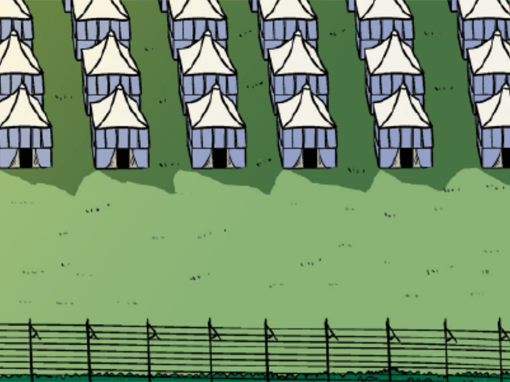With talk these days about keeping out immigrants and possibly rounding up people for their religious beliefs, did you know that it’s happened before, to Japanese Americans?
On Dec. 7, 1941, Japan attacked the American military base at Pearl Harbor, Hawaii. Within two months a plan was created to imprison all Japanese immigrants and Japanese Americans and move them away from the West Coast, because the government was afraid that these people of Japanese ancestry might be loyal to Japan and commit sabotage or espionage.
The problem was, half of the 120,000 people who were incarcerated were born in the US and so were American citizens. Most of those were still children, and had never gone to Japan.
On Feb. 19, 1942, President Franklin Roosevelt signed Executive Order 9066, which allowed the military to designate “Exclusion Zones” along California, Oregon, Washington and part of Arizona that called for people of Japanese ancestry to obey a curfew and stay at home at certain hours, and prepare to be moved from their homes and communities. When the time came, they had only a couple of weeks to pack only what they could carry and sell or give away all their possessions. They couldn’t take their beloved family pets.
By the spring, thousands of Japanese immigrants and Japanese American families were rounded up and first held in temporary camps. Some of the temporary camps were in horse race tracks and families had to share a stall where the horses had been moved out and the stall whitewashed with paint.
The Japanese were transferred to more permanent camps inland, from eastern and northern California to Idaho, Wyoming, Arizona (on Indian reservations), Arkansas and even Colorado. Some were allowed to leave their prison camps to work on nearby farms, and some lucky families were “sponsored” by people across the U.S. and moved to cities in the Midwest and East Coast.
In order to prove their patriotism, some of the men who were imprisoned signed up to fight for the U.S. military. Those who went into the Military Intelligence Service were assigned to fight with the American forces in the Pacific because they could speak Japanese were credited with helping to shorten the war against Japan. The brave soldiers who joined the 100th Battalion/442nd Regimental Combat Team lived up to their slogan “Go For Broke!” and fought in Europe. In one famous battle, the Japanese Americans fought to save the “Lost Texas Battalion” of men surrounded by Nazis, and suffered 800 casualties to save 200 Texans. This combat team still claims the most medals of any military unit in American history for its size and length of service.
Meanwhile, the brave soldiers’ families were prisoners in the U.S. The American concentration camps were home to the rest of the Japanese immigrants and Japanese Americans until the end of the war.
After the war, many Japanese stayed away from the West Coast, where they lost their homes, and businesses. A lot of Japanese Americans settled in Denver after the war, and if you look at Manual High School’s yearbooks from the 1950s you’ll see more than a third of the students have Japanese names!
Many older Japanese Americans didn’t talk about their experiences after the war, because they were ashamed that they were treated as possible criminals and locked away. In the 1970s, the next generation of Japanese Americans mounted a campaign to demand redress – they wanted the government to admit that what happened to them was wrong, and give an apology and reparations payments to the survivors of the camps.
It took decades, but in 1988, President Ronald Reagan signed the Civil Liberties Act of 1988, which included an official apology for the injustice of incarceration, and a small compensation to survivors and their families.
Today, Japanese Americans are proud of their history and achievements, but they want people to always remember and never forget that the United States incarcerated an entire population just because of their race. Japanese Americans hold annual Day of Remembrance events across the country to remind Americans that on Feb. 19, 1942, an Executive Order sent them unjustly to wartime camps.
Pop Culture Classroom
9am-5pm Monday-Friday
Quick Links
Comics 101
For Educators
For Parents
For Students


